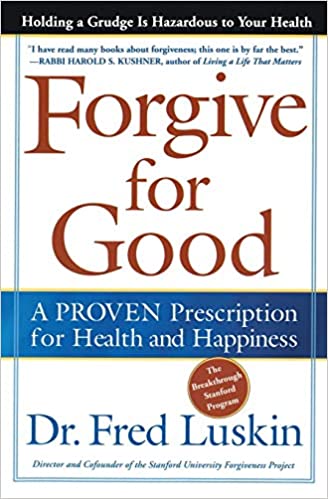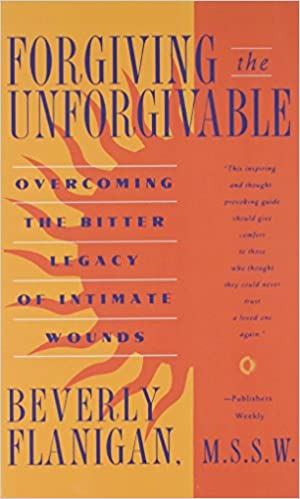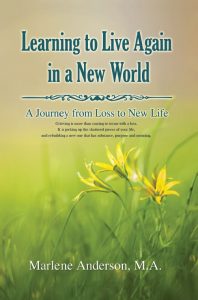Listen to this episode of the Focus with Marlene Podcast:
Get caught up with all episodes in the Moving Beyond Survival series.
“But I say to you that hear, love your enemies, do good to those who hate you, bless those who curse you, pray for those who abuse you.”
—Luke 6:27
Really – pray for them?
Jesus said, forgive seventy times seven (Matthew 18:22). We take it as a moral imperative.
But it isn’t just Jesus who tells us how important forgiveness is, science confirms it as well. In fact, not to forgive is putting a slow death sentence on yourself, as the theologian Frederick Buechner so aptly describes.
“Of the seven deadly sins, anger is possibly the most fun. To lick your wounds, to smack your lips over grievances long past, to roll over your tongue the prospect of bitter confrontations still to come, to savor to the last toothsome morsel both the pain you are given and the pain you are giving back – in many ways it is a feast fit for a king.
The chief drawback is what you are wolfing down is yourself.
The skeleton at the feast is you.”
Frederick Buechner,
Wishful Thinking: A Theological ABC
(New York: Harper & Row, 1973)
 In his book, Forgive for Good, Dr. Fred Luskin lists eleven definitions of what forgiveness is and seven definitions of what forgiveness is not.
In his book, Forgive for Good, Dr. Fred Luskin lists eleven definitions of what forgiveness is and seven definitions of what forgiveness is not.
 In her book, Forgiving the Unforgivable, Beverly Flanigan, MSSW, defines how betrayal of people we trust shatters our core beliefs and concept of right and wrong and begins the creation of unforgivable injuries. Flanigan defines forgiveness as “mastery over a wound,” where an injured person embraces and then “conquers a situation that has nearly destroyed him.”
In her book, Forgiving the Unforgivable, Beverly Flanigan, MSSW, defines how betrayal of people we trust shatters our core beliefs and concept of right and wrong and begins the creation of unforgivable injuries. Flanigan defines forgiveness as “mastery over a wound,” where an injured person embraces and then “conquers a situation that has nearly destroyed him.”
Unforgiveness creates a destructive force in our lives.
Within its tenets we find hatred, rage, and revenge – all corrosive and self-destructing emotional reactions to life. It allows evil and caustic pain to continue.
Research shows that “forgiveness leads to less stress” and fewer health problems. On the other hand, when we fail to forgive, that unforgiveness may be a greater risk factor for heart disease than hostility.
Forgiveness releases you from a prison of resentment. It is necessary for emotional, physical, and spiritual health.
Most of us deal with the sins and transgressions of others in the moment. We get mad, pull away, then make up and go on. When we are the transgressors, we do the same. With minor goofs and slip ups, we feel bad in the moment, apologize, and then move on.
When we personalize indiscretions or offenses of others, however, we are setting ourselves up for the creation of a “grievance story,” as detailed by Dr. Luskin. When we hang on to resentment, it becomes more toxic over time.
7 ways to make forgiveness a gift rather than an obligation
Here are seven ways to make forgiveness a gift instead of an obligation, as suggestions offered by Dr. Luskin. They can help us better understand how and why we are so quickly offended and what we can do to change such a trajectory.
1. Don’t make “unenforceable” rules.
Unenforceable rules are expectations and assumptions that everyone must follow, or we will be personally insulted and offended. Associated with such rules are the words should, must, have to and When you hear yourself saying these words, ask what you are demanding from either yourself or another. How are you eliminating personal choice?
2. Own your feelings.
We blame others for how we feel. People can’t make us feel a certain way unless we allow it. We can choose other ways to respond that don’t involve escalating anger, ill-will or hatred.
3. An injury does not create a “grievance story” – we do.
We can reframe our situations, become less critical and balance troubled times with humor.
4. Forgiveness and reconciliation are not the same thing.
Forgiving prepares the way for reconciliation – it doesn’t automatically say it will happen. Forgiveness is letting go of trying to get retribution. Forgiveness of self says, I can admit when I am wrong, apologize to others and ask forgiveness if needed, and stop beating myself up.
5. Forgiveness does not mean condoning unkindness, inconsiderate or selfish behavior, or excusing bad behavior.
It does not deny or minimize the hurt, pain or injury done to us. It just refuses to make it into an ongoing resentment story that becomes toxic over time. We are the ones hurt by not forgiving.
6. Coming to terms with unpleasantness in life helps us understand we are not perfect or flawless.
We will make mistakes and need grace and forgiveness. Although people will hurt us, they are often unaware they have offended us.
7. Forgiveness is a choice.
We make the conscious decision to let go of hurts and wrongs. Forgiveness requires we first define our grievance. When we can articulate the details of the hurtful event, we will know exactly what we are forgiving. Acknowledge and accept your feelings, and then make that conscious choice to forgive. Forgiving helps us from getting hurt in the future.
Forgiveness allows me to let go of the pain and experience peace. I choose to forgive. How about you?
 Learning to Live Again in a New World
Learning to Live Again in a New World
We need validation for the turmoil of thoughts and emotions we experience. But we also need the tools necessary to create a new beginning that is both satisfying and meaningful. My new book, Learning to Live Again in a New World, offers those tools to help work through the problems you might be facing.
It is a guide to help you through the ups and downs of grieving a significant loss. And it includes a study guide at the end for use with groups.


